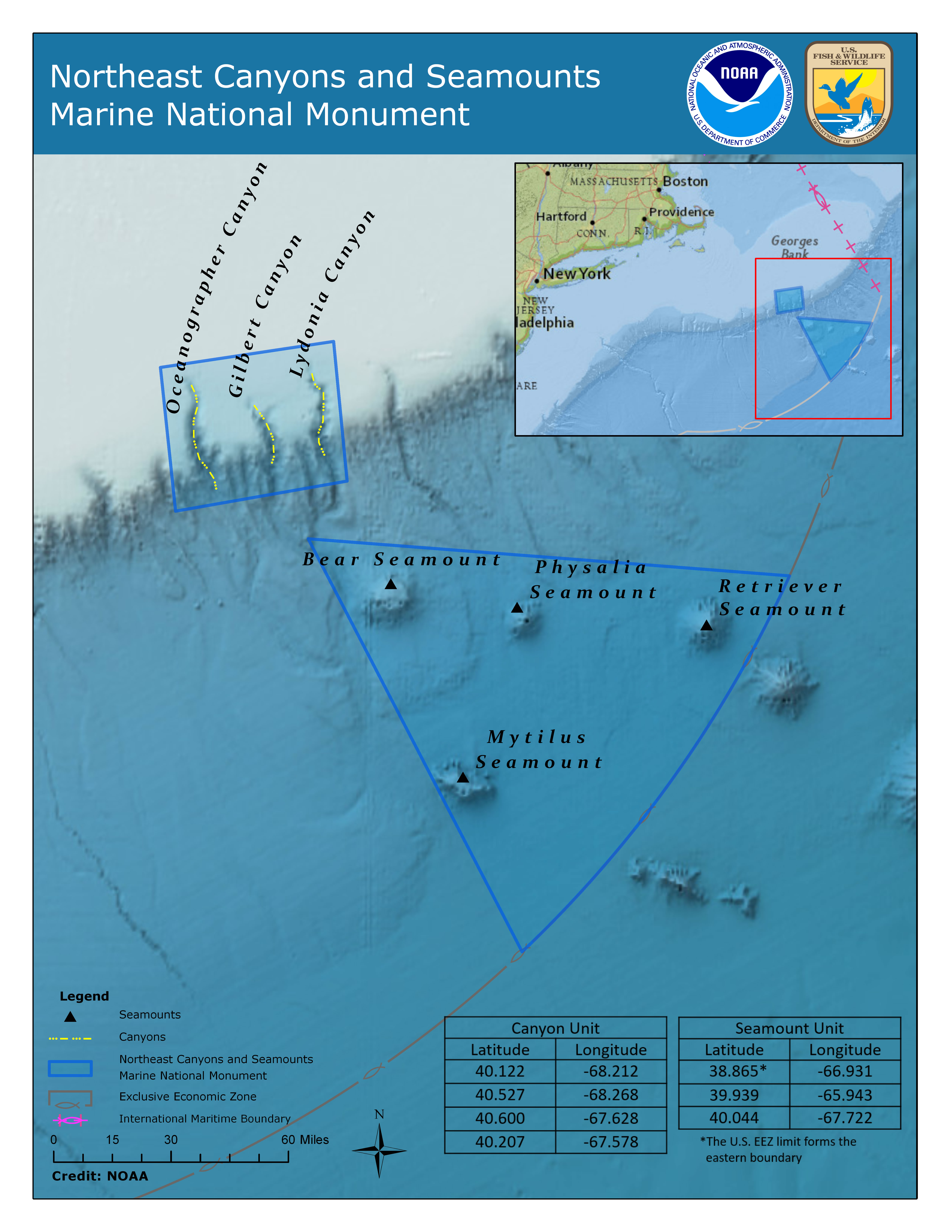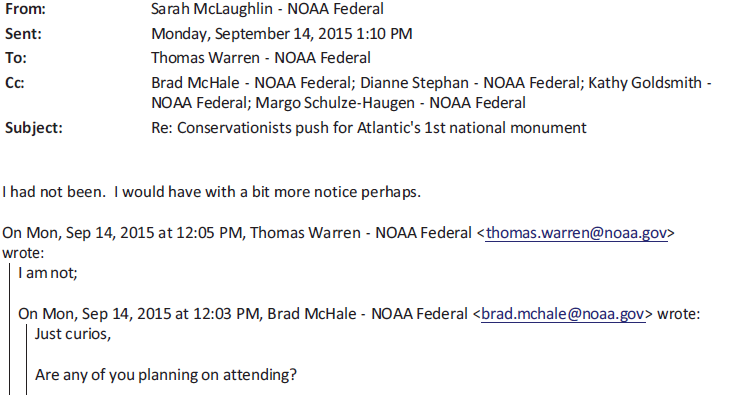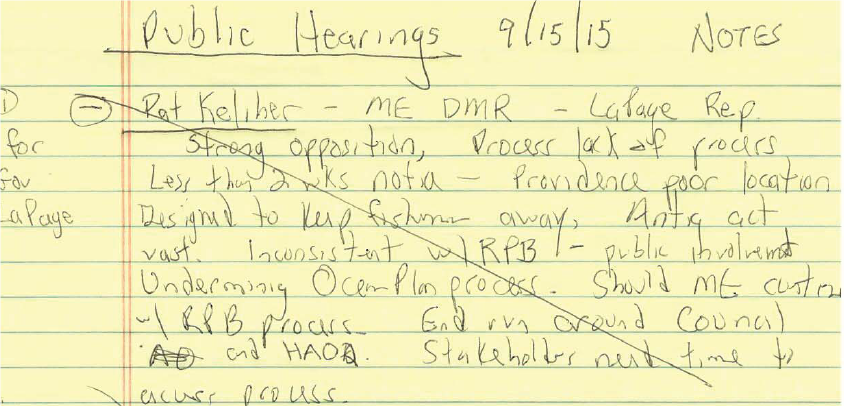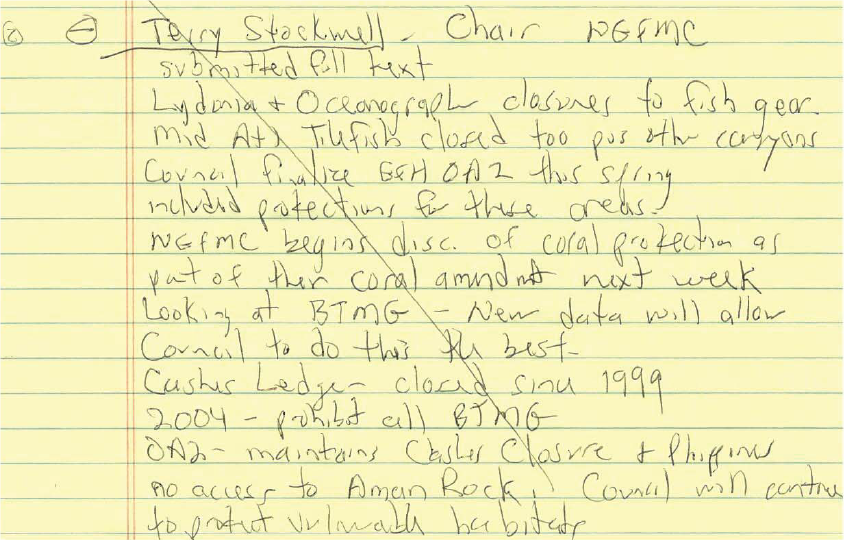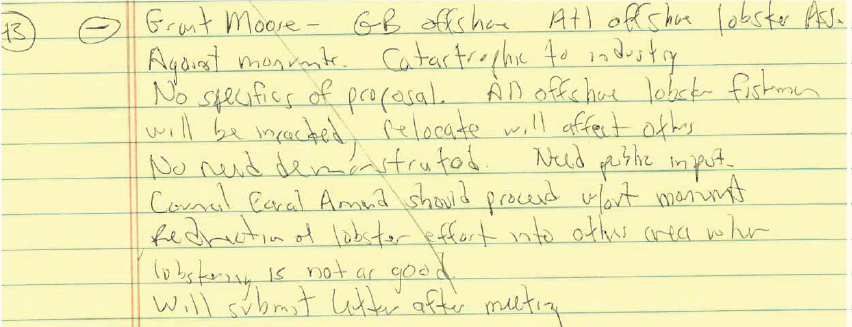Archives for 2017
Cause of Action Institute Joins Broad Coalition Urging Congress to Reject New FOIA Exemption
Cause of Action Institute has signed a joint letter with dozens of groups from across the ideological spectrum urging the Chairmen and Ranking Members of the Senate and House Committees on Armed Services to oppose a Department of Defense (“DOD”) measure that could undermine the Freedom of Information Act’s (“FOIA”) goal of government transparency and accountability through a new FOIA exemption.
The DOD proposal would use the FY2018 National Defense Authorization Act to exempt from disclosure “information on military tactics, techniques, and procedures, and of military rules of engagements.” This proposal represents an effort by the Pentagon – the largest executive branch agency with the largest discretionary budget – to create a FOIA exemption that, if applied broadly, could hide much of the information and documents it creates.
This proposal is both procedurally problematic and unnecessary by DOD’s own practices, and the changes were proposed without the robust consideration and input of the committees with jurisdiction over FOIA. To date, no one has identified a disclosure of information that should not have occurred and that would be protected by this new language. DOD already has authority to withhold classified as well as unclassified information under FOIA for a variety of reasons. The proposed measure would give DOD license to further stretch its ability to shield documents from the public, which could be used to conceal information about matters of compelling public interest, such as the military’s oversight of contractors. This proposal would broaden a very narrowly drawn existing Exemption 3 statute. The risk in exempting more materials from disclosure does not appear to be justified in this case.
Cause of Action Institute shares DOD’s goal of ensuring that information that needs to be withheld for national security purposes is not disclosed. However DOD’s most recent proposal is not the way to do so.
FBI “Can Neither Confirm Nor Deny” Existence of Records About Payment to Trump Dossier Researcher
Washington D.C. – The Federal Bureau of Investigation (“FBI”) has declined to confirm the existence of records responsive to a lawsuit filed by Cause of Action Institute (“CoA Institute”) in April 2017 for records about the relationship between the agency and Trump dossier researcher Christopher Steele, a former British spy who made headlines after he was identified as the lead author of the infamous dossier.
According to a news report, the Trump dossier researcher entered an agreement with the FBI a few weeks before the November 2016 election to investigate then-candidate Donald Trump while, at the same time, he was employed by an opposition research firm to collect information for Democratic presidential nominee Hillary Clinton.
In part, the FBI’s response states:
“The nature of your request implicates records the FBI may or may not compile pursuant to its national security and foreign intelligence functions. Accordingly, the FBI cannot confirm or deny the existence of any records responsive to your request, as the mere acknowledgment of the existence or nonexistence of such records would, in and of itself, harm national security interests and reveal intelligence sources and methods.”
This so-called Glomar response gained notoriety in the CIA’s use of the Glomar Explorer to recover a downed Soviet submarine.
CoA Institute President and CEO John Vecchione: “The FBI is circling the wagons by claiming potential harm to national security if it discloses its relationship with Christopher Steele. Regardless of whether a payment was ever made, the FBI’s affiliation with a political opposition researcher in the midst of a presidential election deserves scrutiny. The FBI should be forthcoming about whether and how the agency was relying upon a former foreign spy who, in the pay of private parties, compiled a report of salacious accusations intended to harm the reputation of then-candidate Donald Trump.”
On March 7, 2017, CoA Institute sent a FOIA request to the FBI seeking access to records into whether the FBI paid money, or had plans to pay, Mr. Steele for any purpose.
The FBI’s full response can be found here.
For information regarding this press release, please contact Zachary Kurz, Director of Communications: zachary.kurz@causeofaction.org
White House Should Release 100K Public Comments on Reforming Government
Washington, D.C. – Cause of Action Institute (“CoA Institute”) today submitted a Freedom of Information Act (“FOIA”) request to the White House Office of Management and Budget (“OMB”) seeking access to the more than 100,000 public comments OMB collected regarding “improvements to the organization and functioning of the Executive Branch.”
Between May and June, 2017, Americans were invited to submit suggestions to OMB in response to President Trump’s March 13 executive order calling for a comprehensive plan to reorganize the Executive Branch. The comments, however, have not been made publicly available.
CoA Institute President and CEO John Vecchione: “Public input can be a fundamental component of government reform, but there is little reason to sacrifice transparency. Given that President Trump’s executive order calls for the possible overhaul of the entire Executive Branch, the need for transparency and open public scrutiny of this matter is paramount.”
In addition to the regulations.gov website, which is routinely used by the federal government for gathering public comments, OMB also collected comments via an online form housed on a White House website. There appears to be a discrepancy between the reported number of comments and suggestions submitted via the reorganizing website, which states that “100,000+ suggestions and ideas” were submitted, and regulations.gov, which states that only 2,019 comments were received.
CoA Institute today requested access to all comments, suggestions, and ideas submitted to the OMB as part of this effort. The FOIA request is available here.
For information regarding this press release, please contact Zachary Kurz, Director of Communications: zachary.kurz@causeofaction.org
Can FTC Ignore the Law to Expand its Power to Regulate Internet Providers?
Cause of Action Institute (“CoA Institute”) has filed an amicus curiae (“friend of the Court”) brief in the U.S. Court of Appeals for the Ninth Circuit in FTC v. AT&T Mobility LLC (“AT&T”) in support of AT&T during the pendency of rehearing en banc of an appeal regarding whether the Federal Trade Commission (“FTC” or “Commission”) has statutory authority to regulate common carriers such as Internet Service Providers (“ISPs”) and telephone companies under Section 5 of the FTC Act.
In September 2016, a unanimous three-judge Panel on the U.S. Court of Appeals for the Ninth Circuit ruled that because the plain language of the FTC Act categorically exempts common carriers like AT&T from FTC regulation under Section 5, the FTC lacks statutory authority to regulate businesses like AT&T. (Instead, such businesses are regulated by a different federal agency, the Federal Communications Commission (“FCC”) under a different federal statute, the Communications Act.) Consistent with the judicial role and respect for the separation of powers, the Panel explained that “[i]t is not for us to rewrite the statute so that it covers only what we think is necessary to achieve what we think Congress really intended. That is a job for Congress, not the courts.”
The FTC subsequently filed a petition for rehearing en banc supported by a number of “friend of the Court” briefs arguing that the full Ninth Circuit should vacate the Panel decision and rehear the case because, among other things, the Panel decision was inconsistent with their views regarding sound public policy and left a supposed “regulatory gap” that the FTC should be allowed to “fill.” On May 9, 2017, the Ninth Circuit granted the FTC’s petition.
Concerned about this development, our brief argues that the Court should decide the case the same way the Panel did; that is, calling balls and strikes and deciding the case based on the statute’s plain text rather than a federal agency’s subjective views on what it thinks is enlightened public policy for the entire country. Our brief argues that such an approach respects Congress’s legislative role under Article I of the U.S. Constitution, as well as the separation of powers. That is because under the U.S. Constitution only the People’s elected representatives in Congress—not a federal agency like the FTC or FCC and not a federal Court—are allowed to rewrite federal law in response to public policy arguments.
As our brief also notes at pages 3-4: “CoA’s interest in this case also stems from its view that, regardless of whether the FTC’s policy goals are sound, the FTC has now “spun out of the known legal universe and … [is] now orbiting alone in some cold, dark corner of a far-off galaxy, where no one can hear the scream ‘separation of powers.’”
These fitting words, describing FTC’s recent forays in Art. III Courts under Section 5, are not hyperbole, but instead reflect a very disturbing reality. FTC’s self-appointed mantle as perverse executive-agency posse comitatus, a poseur arrogant and lawless unto itself, whose overreach and overregulation do not serve the American people or the public interest.
The full brief can be found here.
Patrick Massari is assistant vice president at Cause of Action Institute
Northeast Canyons and Seamounts Designation: Some Stakeholders Are More Equal Than Others
We began our series of blog posts by examining the history, purpose, and limitations of the Antiquities Act of 1906, 54 U.S.C. §§ 320301 – 320303 (“Antiquities Act” or the “Act”) (here and here), followed by a discussion of how the Act fits within the variety of other frameworks for protecting and using public lands (here and here) and the variety of statutory frameworks and federal government programs that are used to manage the jurisdictional waters of the United States. (here and here). We also shared a copy of the comment we submitted to the Department of the Interior in which we outlined our investigative activity relative to the Bears’ Ears National Monument. This week we review the procedural history of the designation of the Northeast Canyons and Seamounts Marine National Monument, also referred to here as the Atlantic Monument, which was made by President Obama on September 15, 2016 (“Proclamation”), and show that certain, privileged, non-governmental entities were granted access to detailed information on the forthcoming monument and allowed input into the designation, while other stakeholders—notably those with specific legal authority, such as Regional Fishery Councils—were denied input and access.
The Atlantic Monument includes the Oceanographer, Gilbert, and Lydonia canyons, which are located at the edge of the geological continental shelf, and the Bear, Physalia, Retriever, and Mytilus sea mounts, which are located farther offshore at the start of the New England Seamount chain.
The Proclamation provided the following justifications for the designation: (1) the historical value of the maritime trades, especially fishing, to the cultural roots of New England; (2) the abundance of deep sea corals, fish, whales, and other marine mammals; and (3) long-time scientific study of the area using research vessels, submarines, and remotely operated underwater vehicles for deep-sea expeditions.
The Proclamation purported to prohibit the following activities, effective immediately:
- Oil, gas, minerals, or other energy exploration, development, or production;
- Poisons, electrical charges, or explosives to collect or harvest a “monument resource;”[1]
- Releasing an “introduced species;”[2]
- Removing a “monument resource” except as provided under “Regulated Activities;”
- Construction or damaging submerged lands (except for scientific instruments or submarine cables);
- Commercial Fishing; and
- Possessing commercial fishing gear unless stowed during “passage without interruption” through the monument.
In addition, the following activities are to be regulated:
- Research and scientific exploration;
- Education, Conservation, and Management;
- Anchoring scientific instruments;
- Recreational fishing;
- Commercial fishing for red crab and American lobster for up to 7 years;
- Sailing, and bird or mammal watching; and
- Submarine cables.
Note that these restrictions do not apply to any person who is not a citizen, national, or resident alien of the United States, unless in accordance with international law. As we explained in our May 22, 2017 blog post, within the EEZ, in which the Atlantic Monument is located, the United States has only limited sovereign rights, and thus international law still applies, limiting the ability of an American President to extend prohibitions to non-Americans.
In light of the stated justification for the Atlantic Monument, it is curious that certain traditional, culturally-significant, and highly-regulated activities, such as commercial fishing, were prohibited; while others, such as recreational fishing, were to be regulated; and some, such as commercial fishing for red crab and American lobster, were granted a seven-year stay of execution—bearing in mind that none of these classifications or limitations even apply to non-Americans.[3] These discrepancies, as well as peculiarities in the procedural history of the Atlantic Monument, were among the bases for a series of FOIA requests that CoA Institute submitted in October 2016, in which we requested records from NOAA and the Council on Environmental Quality (“CEQ”) relating (among other things) to the designation of the Atlantic Monument and to the justification for the unequal treatment of stakeholders and the opaque process surrounding the designation of the Atlantic Monument. The submitted FOIA requests include the following:
- NOAA FOIA Request regarding the Rhode Island Town Hall Meeting;
- NOAA FOIA Request regarding potential Marine Monuments in the Atlantic;
- NOAA FOIA Request regarding Congressional Records;
- CEQ FOIA Request regarding the Antiquities Act; and
- CEQ FOIA Request regarding Third-Party Communications.
To-date NOAA and CEQ have released only a portion of the requested documents. However, even the initial interim releases show that, despite claims that the Atlantic Monument is the product of “an extensive year-long public process,” the designation of the Atlantic Monument was a predetermined decision that allowed for limited public input to appease public backlash.
The following history, derived from the partial responses to CoA Institute’s FOIA requests and other publicly available documents, is illustrative:
In March 2015, the Conservation Law Foundation (“CLF”) and Natural Resources Defense Council (“NRDC”) published an Issue Brief that advocated for “permanent protection” of New England’s canyons and seamounts. By July 2015, NOAA personnel in the Fisheries Service were already discussing the details of which activities should be prohibited post-Proclamation, such as whether the Proclamation should include an exception to the prohibition on fishing for highly migratory species (“HMS”), such as tuna, swordfish, marlin, and a variety of sharks. Although the discussion confirmed that neither commercial nor recreational fishermen of HMS anchor their boats ; and, in fact, most vessels do not carry enough anchor line for the depths in the area, ultimately HMS commercial fishing was prohibited.
In August 2015, the Conservation Law Foundation forwarded to NOAA an invitation to an event scheduled for September 2, 2015 at the New England Aquarium regarding deep sea canyons and seamounts located off the coast of Cape Cod and expressing commitment to “real and significant conservation in New England and . . . ensuring the timely completion of a good and effective ocean plan—the first in the U.S.” The message made no mention of the New England Regional Fishery Management Plan that had long been in place under the Magnuson-Stevens Act.
The following day, September 3, 2015, NOAA issued a broad invitation to participate in a Town Hall meeting scheduled for September 15, 2015—just 12 days after the announcement—to discuss “permanent protections” for three deep sea canyons and four seamounts off the coast of New England. The invitation did not mention designation of a National Monument nor that the meeting would be the only event at which to present feedback. It provided a deadline for submitting written comments to a special NOAA e-mail address, which was set for the same day as the Town Hall meeting. No proposal or details were included with the invitation.
It appears that certain privileged, non-governmental entities that had the inside track on the proposal, including the Pew Research Center and the Conservation Law Foundation, had more information about the proposal before the Town Hall meeting than NOAA was able, or willing, to make available to stakeholders. The lack of information available to local stakeholders hindered their ability to provide meaningful commentary.
NOAA, however, had prepared a briefing document as early as July 2015 that included much relevant information and identified the conflict between the monument proposal and the fishery management councils’ activities. The briefing document also “red flagged” the anticipated objections of various fishermen on the basis that their fishing was not harmful to the area. As of July 2015, the proposal allowed commercial pelagic fishing (i.e., fishing in the water column)—an activity that was ultimately forbidden.
Before the Town Hall meeting, NOAA was advised of specific shortcomings in the notice process that further compromised the ability of local stakeholders to provide meaningful input and that buttressed the impression that the entire process was undemocratic and designed to bypass the extensive multi-year effort to protect marine resources. For example:
- In contrast to NOAA’s standard practice of sending email messages from “@noaa.gov,” the e-mail message announcing the Town Hall meeting was sent from news@meltwaterpress.com, which led recipients to fail to recognize that the message included an important announcement and increased the potential for the message to be caught in a spam-blocker;
- In response to a request for information before the Town Hall meeting, the requester was told that no information beyond the press release was available and no additional briefings or public meetings were scheduled, in contrast to the typical process of holding 15-20 public hearings and providing information electronically.
….
- However, consistent with the experience of other stakeholders, on-line research of the proposal led to the Conservation Law Center and PEW websites, where electronic petitions were available along with inaccurate and misleading information.
- As a result of the patent deficiencies (whether by design or omission) in the public comment process, the writer requested from NOAA an extended comment period, additional public hearings, and detailed information on the specific proposed measures. It appears that no such opportunity for meaningful feedback was ever provided.
The lack of proper notice for the town hall meeting was not just a sticking point for fishermen who were unable to attend, but even created an impediment to attendance for NOAA personnel.
The lack of notice was a contentious issue at the Town Hall meeting, as was the Providence, Rhode Island location, which appeared to have been chosen to keep fishermen away.
By contrast, representatives of academia, Brown University and the University of Connecticut, and special interest groups, Pew and NRDC, remarked that they had already submitted written comments on the proposal. They, apparently, knew enough about the proposal before the meeting to draft comments and submit them ahead of time.
Others—notably fishermen and local businesses—were not privy to specifics of the proposal until they arrived at the Town Hall meeting, and, even then, were provided inadequate details.
The exclusion of the Fishery Management Council from meaningful input apparently was consistent with a desire by some to bypass the “too long” democratic process.
Comments by stakeholders with intimate knowledge of how the area is managed told a different story—the Lydonia and Oceanographer canyons were already closed to fishing gear . . .
. . . the Fishery Management Council process is based on science and abundant data . . .
. . . the Council process is rigorous. . .
. . .and the “pristine” condition of the areas shows that the areas have been well-managed.
Stakeholders who must actually live with the effects of the Atlantic Monument also commented that there are public impacts from the proposed monument—to jobs and other fishing areas that must be, and have not been, considered. As one commenter stated—there are lives at stake.
The full text of the statement of the New England Council Chairman, explaining the history of the Council’s actions, and the design of coral management zones, can be found here.
These spoken comments were consistent with written comments submitted immediately before or shortly after the Town Hall meeting.

Written comments provided after the hearing highlighted certain factual inaccuracies in the presentation in support of the monument, such as:
- The claim that there was increased fishing pressure in the designation areas when, in fact, the number of boats actually fishing had fallen dramatically (by 2/3 or more);
- The Annual Catch Limit is well below the Overfishing Limit;
- The fishing methods described at the September 2015 Town Hall meeting do not resemble the methods actually used;
- Sword fish and squid fishing gear does not come anywhere close to the bottom;
- Thousands of square miles of New England waters have already been closed to fishing via democratic process—in contrast to the undemocratic process used to designate the monuments.
Written comments also reiterated the complaint that the process of designating the monument lacked transparency, including:
- The lack of notice for the town hall meeting;
- The two-minute limit on oral comments;
- The lack of parameters (time frame, review process, etc.) for written comments;
- The lack of ability of NOAA staff to answer questions;
- The pervasive misrepresentation of existing environmental protections and conditions; and
- The lack of specifics on the proposal—no boundaries, no regulatory provisions, no depth contours, and no evidence of need or benefit to closing the area.
Meanwhile, as the fishermen were begging for due process and the Council was pleading to be allowed to do its job, it appears that the Administration was continuing to work with certain, privileged, non-governmental entities toward announcing the monument designation at the 2015 Our Oceans Conference, scheduled to take place in Valparaiso, Chile or October 5-6, 2015. Notably, this plan was known among the privileged entities before the Town Hall Meeting, a fact that they took care to keep quiet.
The “potential collusion” of these outside interests in the apparently pre-ordained monument designation was of concern to the U.S. House of Representatives Committee on Natural Resources, which held an oversight hearing on the potential designation of marine national monuments on September 29, 2015—only 6 days before the Our Oceans announcement was to take place.
Throughout 2016, objections to establishing a marine monument in the Atlantic were made by stakeholders who had intimate knowledge of the area as well as their life’s work at risk. Like the earlier commenters, they objected to the lack of transparency, democratic process, accurate data, and coordination with existing—and effective—management plans.
These calls went unheeded and the Atlantic Monument was proclaimed on September 15, 2016. Nevertheless, and notwithstanding the initial plan to announce its designation at the Our Oceans Conference in October 2015, throughout 2016, there remained considerable confusion within NOAA as to what the monument would entail, including very basic questions such as:
the types of fisheries that are in the monument area;
whether fishing permits are required, the term of fishing permits, and the effect of the designation on existing permits;
whether conditions could be placed on permits by NOAA, or whether a rule-making would be required
Ultimately, they concluded that a rulemaking would be required:
The need for a rulemaking also raises the critical question of whether the Administration ever had the legal authority to implement a monument in the Atlantic Ocean in the first place. But, more on that later . . . Our series will continue next week with an analysis of the legal issues arising from the imposition of a Marine National Monument in an area that is already subject to a comprehensive regulatory scheme.
Any questions, commentary, or criticisms? Please e-mail us at kara.mckenna@causeofaction.org and/or cynthia.crawford@causeofaction.org.
Cynthia F. Crawford is a Senior Counsel at Cause of Action Institute.
Kara E. McKenna is a Counsel at Cause of Action Institute. You can follow her on Twitter @Kara_McK
[1] This term is not defined in the Proclamation.
[2] This term is not defined in the Proclamation.
[3] Citizen, national, or resident alien of the United States.
Is President Trump Directing Agencies To Ignore Democrats’ Oversight Requests?
The transparency community was abuzz last week when Politico reported that the White House was directing federal agencies to ignore oversight requests from Democratic legislators. According to unnamed “Republican sources,” a White House lawyer “told agencies not to cooperate” with record requests from the minority. Politico described this as “amount[ing] to a new level of partisanship in Washington[.]” But is that the case?
There is a dearth of publicly available evidence as to the Trump Administration’s actual policy. The White House has been cagey in providing clarification. Politico reported that a White House spokesman insisted that agencies should “accommodate the requests of chairmen, regardless of their political party.” But Republicans control both the House and the Senate and all congressional committee chairmanships, so the official policy, if any, remains unclear.
Some Democrats have claimed that officials at the Office of Personnel Management and the General Services Administration refused to disclose information without a committee chairman co-signing an official request. Cause of Action Institute filed Freedom of Information Act (“FOIA”) requests with those agencies today (here and here) in an effort to verify what Democrats might have been told because—again—the relevant records are not publicly available and agency officials deny the Democrats’ allegations. Similar stories of agencies remaining silent when approached by Democrats have circulated over the past few months.
The Project on Government Oversight offered a measured response to Politico’s report, suggesting that the Administration’s course appears consistent with Reagan-era Department of Justice (“DOJ”) guidance that effectively directs agencies to process requests from individual Members under the FOIA. That difference in treatment, as compared to requests from committees or those with official oversight responsibility, is particularly relevant to an agency’s inability to withhold information under 5 U.S.C. § 552(d).
A recent opinion letter from DOJ’s Office of Legal Counsel (“OLC”), however, does appear to complicate matters. The letter suggests that the Trump Administration may be charting a course into newer and less transparent waters:
“The constitutional authority to conduct oversight—that is, the authority to make official inquiries into and to conduct investigations of executive branch programs and activities—may be exercised only by each house of Congress or, under existing delegations, by committees and subcommittees (or their chairmen). Individual members . . . do not have the authority to conduct oversight in the absence of a specific delegation . . . . Accordingly, the Executive Branch’s longstanding policy has been to . . . accomodat[e] congressional requests for information only when those requests come from a committee, subcommittee, or chairman authorized to conduct oversight.”
Unfortunately, the OLC opinion misframes the issue and, in doing so, provides a distorted view of the law. True: an individual Member’s request for information—regardless of political affiliation—“is not legally enforceable through a subpoena or contempt proceedings,” and, in that sense, the Member lacks “constitutional authority” to conduct formal oversight. But nothing prohibits a legislator from requesting information for his own purposes, on behalf of a constituent, or to try to hold the Executive Branch accountable in a more colloquial sense of “oversight.” As former White House attorneys Andy Wright and Justine Florence argue, Republicans often sought disclosure of records from the Obama Administration when they were not in control of Congress. In such instances, federal agencies should not, in theory, have ignored the requests, but instead followed DOJ guidance and processed them under the FOIA, just like a record request from any member of the general public.
The track record of the Obama Administration, in this respect, is hardly flattering. Indeed, Wright and Florence’s claim that the Trump “[A]dministration believes members of Congress asking for information about federal agencies are entitled to even less than members of the public,” is loaded with irony. As attorneys in the Office of the White House Counsel, Wright and Florence personally helped President Obama lead one of the least transparent governments in American history. Cause of Action Institute was the first to expose the Obama Administration’s practice of “White House equities” review, which lead to the severe delay and occasional ignoring of both FOIA requests and congressional record requests, including those that had been issued under subpoena. Individual Members and committee chairmen alike were subject to this politicized review process. If the Executive Branch has formally adopted a policy to obstruct Democrats, it would be a continuation of President Obama’s legacy of opacity and secrecy.
To summarize, the relevant legislative history and DOJ guidance states that a Member of Congress enjoys a statutory right of public access under the FOIA (and, similarly, the Privacy Act) to records of the administrative state. Minority oversight requests should be considered FOIA requests as a matter of course. An individual Member would thus have the same right as anyone to “enforce” his request under the FOIA’s judicial review provision, 5 U.S.C. 552(a)(4)(B). It is improper for OLC to suggest that agencies should only provide “discretionary responses,” say, “to correct misperceptions or inaccurate factual statements.” An agency may exercise discretion to prioritize a Member’s request or to release exempt material from responsive records. But an agency lacks the discretion to ignore a Member of Congress simply because of his or her political affiliation or position in leadership.
Ryan Mulvey is Counsel at Cause of Action Institute.

